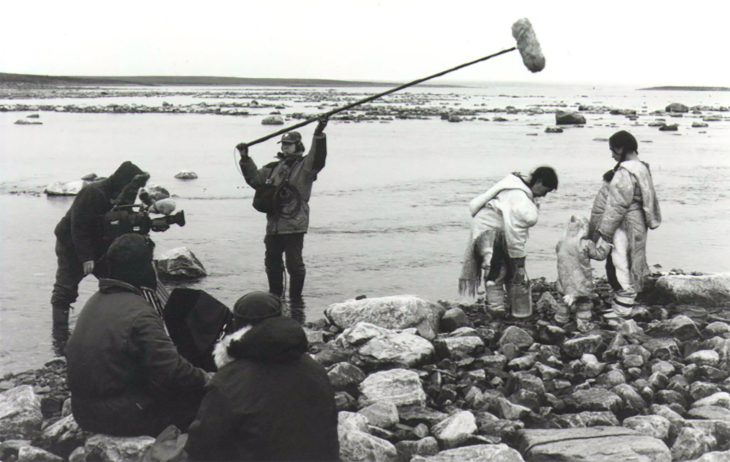
The CRTC on Tuesday granted Uvagut TV mandatory distribution on basic TV, beating out its fellow Inuktut-language broadcaster Inuit TV for the spot.
Distributors will need to pay a monthly per subscriber fee of nine cents to carry the channel run by the Nunavut Independent Television Network (NITV), which proposes to run 24 hours a day, for a five-year term until August 2029. Inuit TV had proposed 18 hours a day but said it would have difficultly meeting that threshold in the immediate term.
Uvagut TV has been on the air since January 2021, offering Inuit-made children’s shows, movies, documentaries, and informational, cultural, public access and current affairs programming. Inuit TV, operating by Inuit TV Network, has been on the air since May 2022 and offers children’s and youth programming, documentaries and feature films.
“The most significant difference between the applications is that, starting in Year 1 of the licence term, NITV’s programming commitments are likely to be more immediately achievable than those of ITN, and would therefore ensure benefits to the broadcasting system earlier,” the CRTC said in its decision.
“Since NITV is already adhering to most of the commitments it proposed, the Commission finds that NITV is in the best position to deliver on its significant commitments and provide more immediate service to Inuit, thereby fulfilling the objectives of the Act in a timelier manner and ensuring earlier benefits to the broadcasting system,” the commission added.
“Inuit will, within Year 1 of the licence term for Uvagut TV, have access to additional programming, including original first-run programming in Inuktut that aims to be reflective of and relevant to Inuit in Canada.”
Despite both channels meeting the criteria for mandatory distribution, the regulator acknowledged that granting both must-carry status would be detrimental to both given that there isn’t enough programming, especially first-run, content available for broadcast.
But commissioner Claire Anderson, the first indigenous woman and first Yukon resident appointed to the CRTC, dissented on the decision on the basis that “the evidence on the record … shows that Inuit TV would cease operations without a mandatory distribution order.
“I would have approved the mandatory distribution order application for Inuit TV instead, in hope that both services would continue to make valuable contributions to Canadian culture, which is more in line with the spirit of cooperation that we heard throughout the hearing, as well as the objectives imposed by the Act,” she added.
Anderson added that, because the decision could have a detrimental impact on Inuit TV, its owners should have been given an opportunity, as she said is required, to opine before the decision was made, especially because it had the backing of Nunavut Inuit rightsholder, Nunavut Tunngavik Inc.
Because both channels now have more than 200,000 subscribers, they do not meet the criteria of exempt services. As a result, both were granted their application to become licensed discretionary services.
Program photo via Uvagut TV


